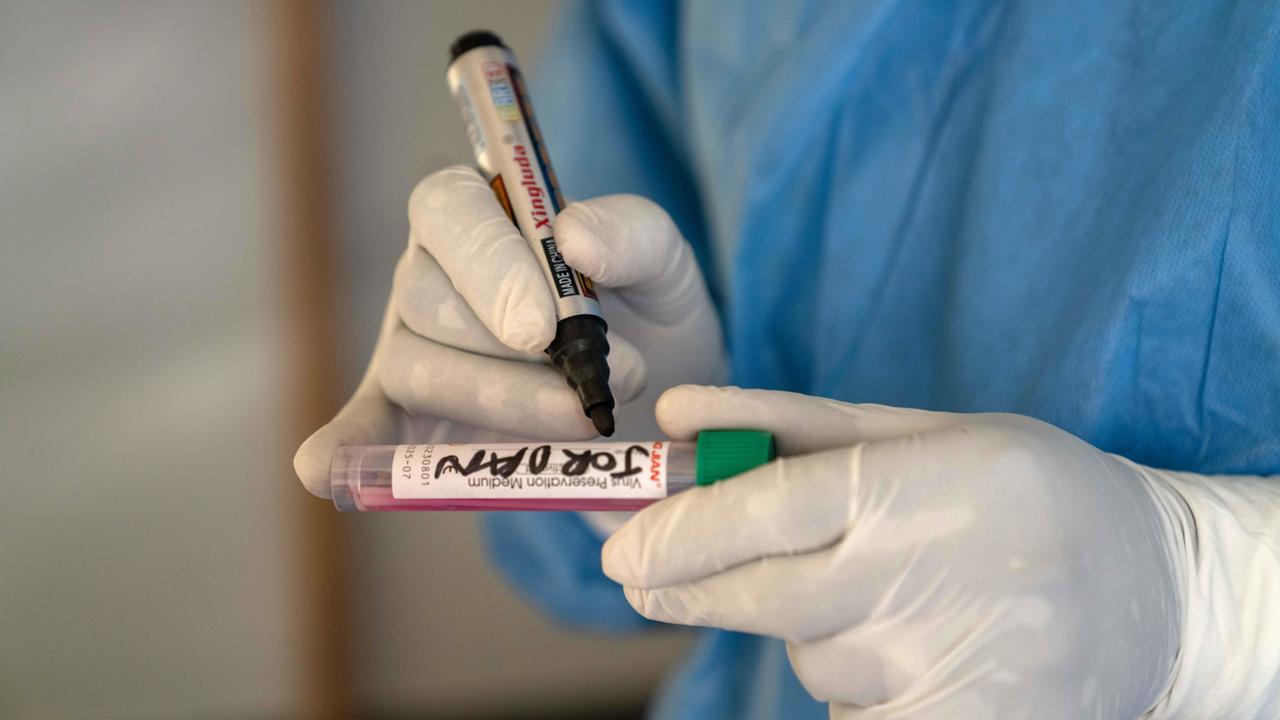The spread of Mpox in South Africa is currently still manageable, but that can change quickly. The country is preparing for an emergency. Doctors are particularly concerned about the many HIV-infected people in the country.
“We have the situation under control, but who knows what will happen tomorrow,” says Foster Mohale. The spokesman for the South African Ministry of Health is currently on television or radio almost every day: “There is no reason to panic. However, we must remain vigilant and be prepared.”
Of course, the government in the capital Pretoria is also closely monitoring how the particularly contagious Mpox variant is spreading in other African countries – especially in the Republic of Congo.
Information campaigns and hygiene measures
“We are working with the border guards,” says Mohale. “Our agency has intensified controls to ensure that people coming from affected countries are screened. And that those who show Mpox-like symptoms are referred to the nearest health facility for further examination.”
South Africa is also relying on comprehensive information campaigns, particularly regarding hygiene measures and close physical contact.
Virus as Challenge for international community
President Cyril Ramaphosa is calling on the global community to stockpile vaccines and distribute the drugs fairly this time – unlike during the Covid pandemic.
International cooperation is the key, says Frank Blackmore of the management consultancy KPMG. The virus has already been found in many countries – in the USA, Canada, South Africa, Israel and in large parts of Europe and Asia. “So it is a global problem,” emphasises Blackmore. “Close cooperation will concentrate measures and funding where they are needed to stop the spread of this disease.”
Fast action now important
Helen Rees is a professor of medicine and heads the renowned Institute for Health and HIV Research at the University of the Witwatersrand in Johannesburg. She warns: “The Covid pandemic has shown that we must act quickly and not wait until it is too late.”
“We are seeing that the virus is changing,” explains Rees. “It is now being spread through sexual contact, for example. We are concerned about this disease. We want to contain it and prevent it from becoming a global problem.” In Africa, Mpox is already a major problem. In South Africa, this is mainly because around five and a half million people are carrying the HIV virus.
More Challenge in South Africa: HIV
“Many HIV patients have the disease well under control with medication,” explains Rees. Their immune systems are strong and they can fight off the Mpox viruses.
“But many have either stopped taking their medication or don't even know that they are HIV positive.” The immune system is then weakened and serious illnesses can occur. “And that is exactly what is leading to deaths in our current outbreak in South Africa.”
Take the situation seriously
The South African authorities have so far registered 24 infections and three deaths. Compared to the Republic of Congo or Nigeria, this is a manageable record. For now, says Foster Mohale, spokesman for the Ministry of Health, and warns against taking the epidemic lightly.
“The fact that the current strain of the virus we are dealing with is less contagious does not mean that we are safe, because we live in a global village where people travel from one country to another. That means we are safe for now, but not forever.”





